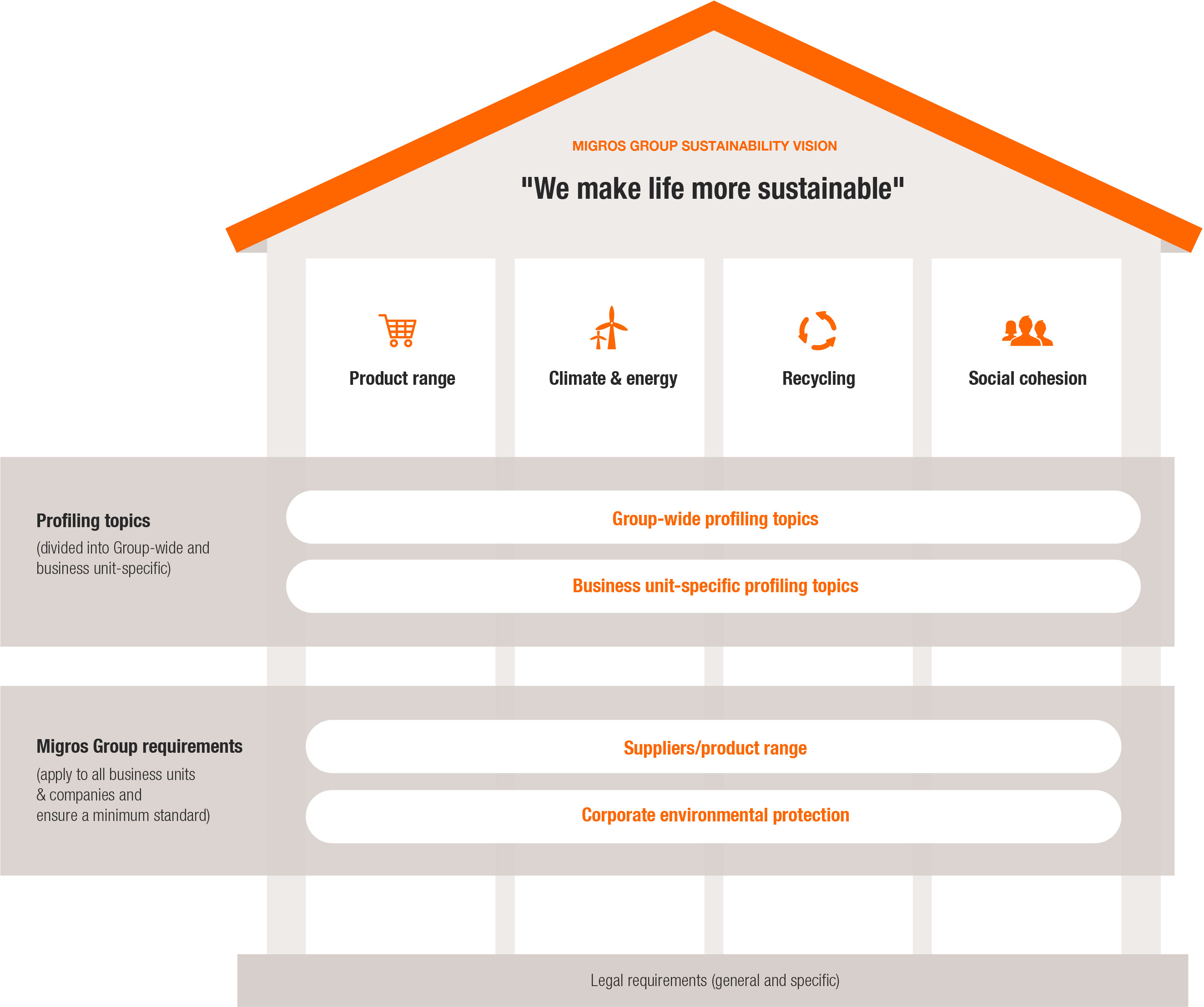Sustainability Management
Sustainability is part of the Migros culture and an integral component of Migros' corporate activity. In line with the Migros Group sustainability mission statement, Migros bundles and manages its sustainability activities within a Group-wide strategic framework.
The values responsibility and credibility are part of the Migros Group strategy. The economic, social and ecological objectives are implemented along the entire value-added chain.
The Migros Group has a clear concept of sustainability. It offers a broad range of sustainable products and services, serves as a partner for a healthy lifestyle, is a model employer, sets standards for climate protection and resource efficiency, and promotes social cohesion.
Migros Group sustainability mission statement
The Migros Group sustainability mission statement applies to all companies. It combines a sustainability vision and mission, Group-wide profiling topics and the Migros Group requirements for sustainability all in one. In 2020, all Migros Group companies revised their individual sustainability goals in accordance with the Migros Group sustainability mission statement.
The mission statement embeds the sustainability strategies of the business units and the individual sustainability targets of the companies in a Group-wide, overarching framework. It follows the vision "We make life more sustainable" and focuses on a sustainable product range, climate protection, closed-loop recycling and promoting social cohesion.

Sustainable Development Goals (SDG)
The Sustainable Development Goals (SDGs) adopted by the UN in 2015 comprise 17 goals as a framework for global sustainable development. The Migros Group makes an important contribution to implementing these global sustainability goals along the entire value-added chain. Detailed information about this can be found here.
Regular progress checks
In order to manage the achievement of targets, Migros uses KPIs to measure its progress in the area of sustainability. As part of regular monitoring, the degree to which the Migros Group requirements are implemented and individual goals met in the strategic business units is checked centrally by the Federation of Migros Cooperatives (FMC). The progress (including status indicators) is reported to internal decision makers and, to some extent, made public.
